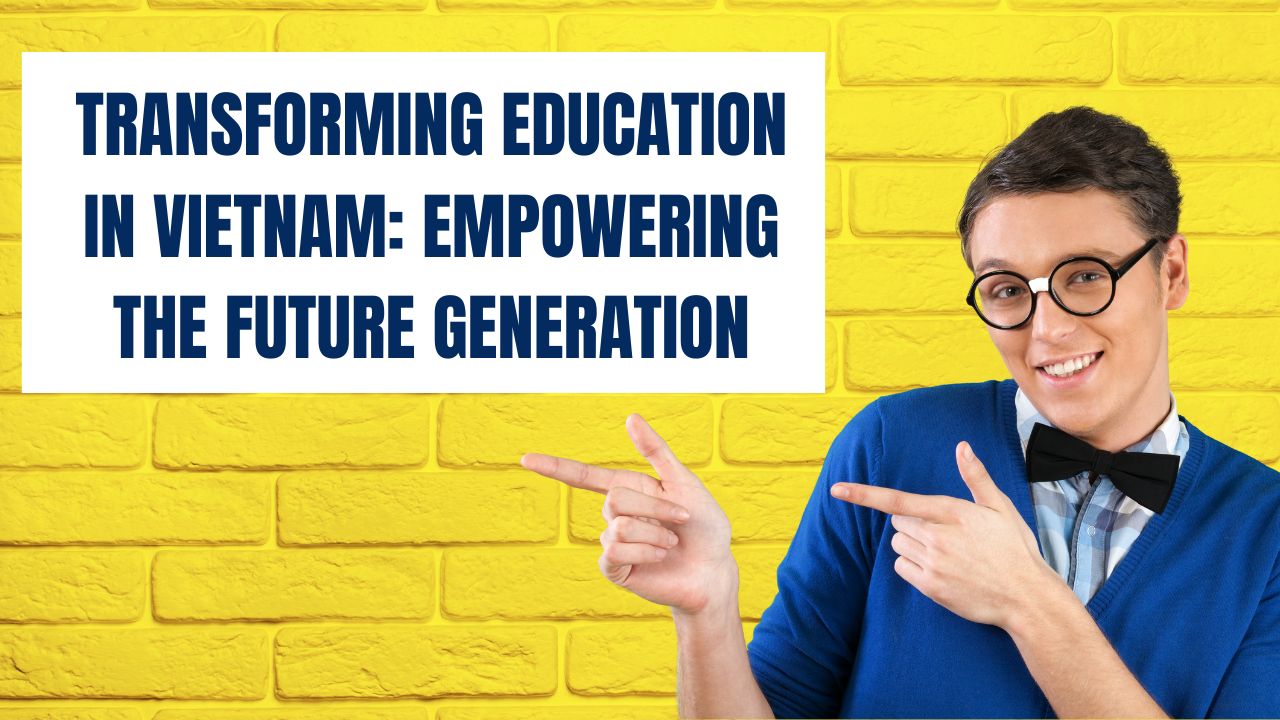Introduction
The role of education in shaping the future of a nation is pivotal and fundamental. In Vietnam, a country that has undergone remarkable economic and social progress in recent decades, the transformation of its education system has been instrumental in empowering the future generation. This article explores the evolution of education in Vietnam, highlighting key reforms, challenges, and the significant strides made in ensuring quality education for all. From early childhood to higher education, Vietnam’s commitment to educational advancement is evident in its efforts to equip students with the knowledge and skills needed for success in a rapidly changing world.
Early Childhood Education
Recognizing the crucial role of early childhood education in laying the foundation for a child’s development, Vietnam has focused on expanding access and improving the quality of preschool education. The government has implemented policies to increase enrollment rates and enhance teacher training programs, ensuring that children receive a solid educational start. Additionally, the integration of play-based learning approaches has been emphasized, fostering creativity, critical thinking, and social skills among young learners.
Primary and Secondary Education
Vietnam’s primary and secondary education system has witnessed significant reforms aimed at raising academic standards and equipping students with a well-rounded education. The implementation of standardized curricula and assessments has helped ensure consistency and quality across schools, while also encouraging critical thinking and problem-solving skills.
Furthermore, efforts have been made to enhance teacher training and professional development to improve teaching methods and classroom practices. Teachers are encouraged to adopt student-centered approaches, promoting active learning, collaboration, and independent thinking.
The government has also prioritized the integration of technology in classrooms, recognizing its potential to enhance learning experiences. Initiatives such as equipping schools with computers and digital resources, as well as promoting digital literacy among students, have contributed to the modernization of education in Vietnam.
Vocational and Technical Education
Vietnam has recognized the importance of vocational and technical education in preparing students for the demands of the job market. The country has expanded vocational training programs, offering diverse options for students to develop practical skills and gain industry-specific knowledge.
Partnerships between educational institutions and industries have been fostered to ensure the relevance of vocational education and align it with market needs. Internship opportunities and apprenticeships provide students with real-world experience and facilitate their transition into the workforce.
Higher Education and Global Integration
Vietnam has witnessed significant growth in its higher education sector, with an emphasis on expanding access, improving quality, and fostering international collaboration. The government has encouraged the establishment of universities, research centers, and educational partnerships with foreign institutions.
Efforts to enhance the quality of higher education have included curriculum reforms, faculty development programs, and research funding initiatives. These measures aim to produce graduates who are not only academically competent but also equipped with critical thinking skills and an entrepreneurial mindset.
Furthermore, Vietnam has actively sought to integrate its higher education system into the global academic community. International student exchange programs, joint research projects, and partnerships with prestigious universities worldwide have created opportunities for Vietnamese students to gain global exposure and for foreign students to experience Vietnam’s rich cultural and educational heritage.
Conclusion
The transformation of education in Vietnam reflects the nation’s commitment to equipping its future generation with the knowledge, skills, and competencies needed to thrive in a rapidly changing world. From early childhood to higher education, Vietnam has made significant strides in expanding access, improving quality, and fostering global integration. As Vietnam continues to invest in education, it is poised to create a well-educated and skilled workforce, driving innovation, economic growth, and social progress for years to come.
